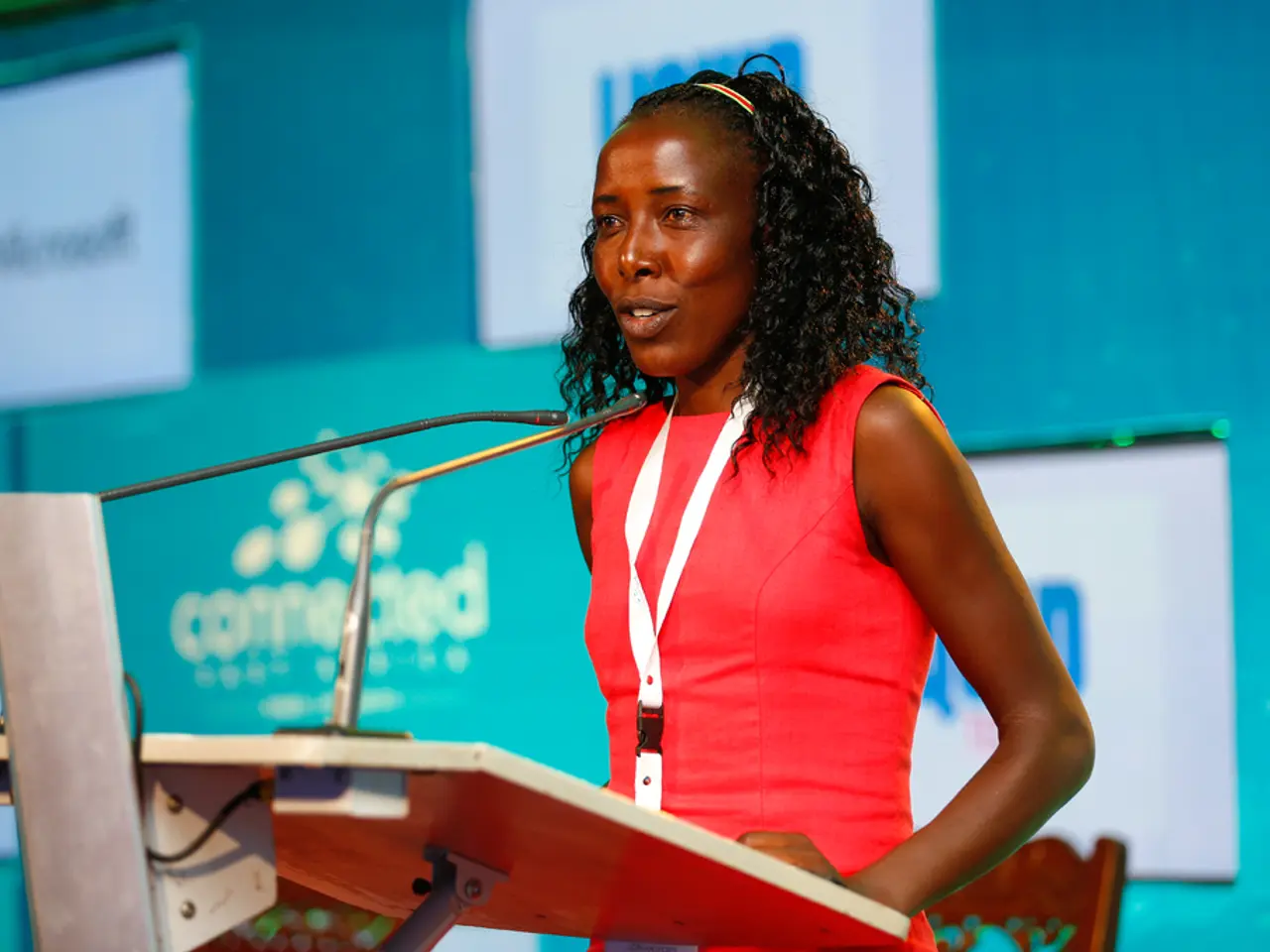Congress authorizes an approximately $9 billion reduction in international assistance and public broadcasting financing
In a close 51-48 vote, the Senate has approved President Trump's request to rescind $9 billion in funding focused on foreign aid and public broadcasting, passing the amended legislation early Thursday morning [1][3]. The revised bill targets approximately $8 billion in foreign assistance programs, including the U.S. Agency for International Development (USAID), and about $1 billion in cuts to the Corporation for Public Broadcasting, which supports NPR and PBS [1][2][3].
Key developments and context reveal a contentious debate in the Senate, with representatives from various states, such as South Dakota and North Carolina, participating in the discussion [1]. Senator Mike Rounds stated that funding would be reallocated from climate funds to keep stations in tribal areas operating without interruption [1]. Cuts to local radio and television stations, particularly in rural areas, were a point of contention in the Senate [1].
Senate Republicans, including Majority Leader John Thune, played a critical role by proposing a substitute amendment that adjusted the rescissions measure to make it more acceptable to holdouts [5]. Thune's amendment notably eliminated a $400 million cut to the U.S. President’s Emergency Plan for AIDS Relief (PEPFAR), a move that addressed concerns from senators like Republican Susan Collins of Maine [2][3][5].
However, moderate Republicans Susan Collins (Maine) and Lisa Murkowski (Alaska) joined Democrats in opposing the rescissions package, citing a lack of transparency about which programs specifically would be cut or affected [3]. Collins emphasized the administration’s failure to provide detailed accounting of the cuts and their impact on essential foreign assistance programs like education, water, sanitation, and food security [3].
Multiple Democratic amendments aimed at protecting parts of foreign aid and public broadcasting were rejected during the Senate’s lengthy vote-a-rama process [3]. Senator Thom Tillis expects that Congress will have to try to fix some of the cuts once their impacts are determined [1].
The Senate sent the amended bill back to the House, which had already approved an earlier version of the rescissions request. The House must approve this final Senate version by the end of the week or else the funds must be spent as originally appropriated [1][3]. If approved, the package will include about $1 billion in cuts for the Corporation for Public Broadcasting and the Senate's version targets roughly $8 billion for foreign assistance programs, including USAID [1][3].
Senator Lisa Murkowski expressed concerns about giving up budget oversight and the potential for continuous rescissions packages, while Senator Thom Tillis mentioned that he suspects there will be things that Congress will regret in the aid cuts and that they may have to come back and fix it [1]. Vice President JD Vance cast two tie-breaking votes for the measure, but was not needed for final passage [1]. Democratic Sen. Tina Smith missed the vote due to hospitalization [1].
In summary, the Senate has passed the rescissions bill with adjustments primarily led by John Thune to ease opposition, but some senators remain concerned about the lack of transparency and the impact on foreign aid and public broadcasting funding [1][3][5]. The final fate of the bill depends on the House’s approval later this week.
- The Senate debate, centered around the rescissions bill, revealed a focus on various areas, including health news, as concerns were expressed about the potential effects on essential foreign assistance programs like education and food security.
- Senate Majority Leader John Thune, involved in politics and policy-and-legislation, proposed a substitute amendment that adjusted the rescissions measure, specifically eliminating a substantial cut to the U.S. President’s Emergency Plan for AIDS Relief (PEPFAR).
- General news highlighted a contentious discussion in the Senate, with representatives from states like South Dakota and North Carolina, advocating for countries and local communities that could be affected by climate change and reallocation of climate funds.
- Senator Lisa Murkowski expressed concern over giving up budget oversight and potential future rescissions packages, which could have long-term implications for environmental policies and the climate.







